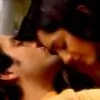Previous Chapter
Next Chapter.
We shall take leave of Siliguri and now revert our attention to the financial capital of India, where the children of Gangadhar have already married, and moved into their new house in Dadar. The two brothers, Vidhyadar and Sridhar, saw the arrival of independence in India. As young boys, they saw, great changes taking place, and never realized what was happening around them. In the evenings, when Gangadhar's friends would visit him, they would speak to him, about what Tilak had done, and also about the latest visit of Mahatma Gandhi to Bombay, and the large meeting that was had at the August Kranti Maidan. Gangadhar, had participated in sports and was well conversant with events taking place, and also took part in the discussions. 1942 was the year, he participated in the Quit India movement, and that year his younger son was born, and his elder one was 8 years old. In 1944 there was a bombing incident in the port area, and lights had to be put off after dark, and the Army conducted, self protection courses, and taught people to hide under beds, when the siren went. finally when the war ended in 1945 there were celebrations. India was not much affected by the war, except that much of the rice and wheat was diverted for the army, and rationing was introduced, and was continued even after the war.
As India gained independence in 1947, Vidhyadar and Sridhar grew and had done well in their school. The younger boy, was more interested in mischief, rather than his studies. His elder brother had to coach him, when examinations approached, but the hard headed boy, never took interest as much as the older one enjoyed everything he learnt. He was especially fond of Indian History, and could relate to events that were taking place around him. As children, they had to live with whatever their parents could afford. The salaries were not much, and the things also did not cost much, and they believed in living within their means, and did not compare themselves with other boys, some of whom belonged to wealthy trading families. In those days, after independence, under the Indian administration, many controls were placed on people, and some of the traders tried to avoid the rules, and resorted to shortcuts. They declared less value in their sale, and siphoned off, a larger chunk, into their pockets, which was unaccounted for. Thus there was a dual economy, to avoid taxation, which the Government had introduced to become self reliant. The Indian public, was so used to the British lording over them, that they thought even now, that the Government was run by a foreign power, and expected everything to be done for them by it, and they did not have to contribute anything. This idea of nationhood, escaped the attention of the ordinary and illiterate people, who still thought in the slave and master mentality. Vindhyadar however, was more understanding, and used the lessons he studied to advance himself and his family. In those days, when the hands of the Government were full, they had to manage the country, as well as educate the masses to work for their country, but the latter job was an uphill task, due to the servile mentality of the people. If someone came from abroad, with foreign stuff, they would hanker for it, and pay the asking price, from their unaccounted money, and so a class of people came about, who gave the impression of the newly rich but lacking in any civic sense. This affected the civic administration, and overall growth of the nation, and our country was considered to be a third world country. Due to shortage of funds, there was restriction on what one could import, and thus if someone brought things from abroad, heavy customs duties were levied, and that too added to the menace of unaccounted money, as now, even the government officials started taking bribes from the newly rich classes.
In 1954, Vidhyadar completed his graduation, from Elphinstone college, and was an accredited teacher. He applied for the post of history teacher in the Ruparel College which was opened two years before, and was employed by it, and started teaching in earnest. He prepared every lesson in advance, and made his classes interesting by including current anecdotes, and making the lesson meaningful to the students. He wanted to put in his bit, in building the nation, with intelligent people. In spite of his efforts, very few students took the subject seriously. They were influenced by the show-off people, that they were concerned in what they wore and how they looked. They just wanted to get a pass mark, to get on with their life. Vidhyadar knew that this would give our country only below average human resource with which to build a nation, and change it from its third world status. But the people only counted how much they had and could spend. It did not matter to them if it was in white or in black. This attitude was a bane of the development of our nation. The younger Patwardhan was one of them, who was only concerned how to get some money to spend and make a show to his friends. His hardworking father, had no clue what was happening in his family, in the newly independent country, that was his. His old vision, of dharma and devotion, was getting lost on the younger generation, who were now being influenced by the newly emerging print media and the advertisements that were appearing in them. India was getting to be a consumer society.
His father decided that his elder son, Vidhyadar was of marriageable age, and set about finding a suitable bride for him. Gangadhar received a proposal from his friend, in his village, and she was a young beautiful girl, named Vibha, belonging to the More family. Since the family was of high repute, and the parents had brought up their daughters in an exemplary fashion, it was felt that she would be the ideal wife for his son, and on 23rd May, 1963 they were married, and the bride came into their family, and the two newly weds, lived like ideal husband and wife. Vidhyadar did not rush into marriage, but had a period of courtship, when he came to know the likes and dislikes of the girl, and also made her known, his own preferences, and they seemed to be made for each other Vibha's elder sister Minoo was already married, and chaperoned her sister, when they went out.
Vibha once she came to the Patwardhan house, left no time wasted to become familiar with her mother in law's tastes, and her ideals. She got along very well with her, and her winsome nature made the mother in law, take to her with ease. There were no conflicts at all, and Vibha could sense what was expected of her, before being told. For her, marriage was a divine institution, where laws were set, and the limits of one's liberty too. As a true Hindu wife, she was faithful, and devoted to her husband's needs, and he too was a true gentleman, treated her with respect and gave her the space she needed. She fulfilled all her religious duties, and did the morning puja with her mother in law every day, and learnt from her the meaning of family life. For the first five years, her pregnancies were not fruitful, and the first one she carried to full term, was when her eldest son Sanket was born in 1968. Two years after the birth of Sanket, her mother in law passed away. Her husband felt her loss very much, but Vibha was so considerate, that she never allowed him to feel the loss. She was always there at his beck and call, and met all his needs, even before he could mention about them. She was spoken of by him as the most dutiful wife, and blessed one in the family. Her father in law would always praise her in front of his friends.
She began expecting for her second child and he was born in 1972. They named him Daksh. Daksh was a cute baby boy, and had her features. Both these children inherited the traits of their parents. The mother would re-enforce their natural instincts with the foundation of a deep religious back bone, through her constant discourses, and admonitions to her children. Just as she was against confrontation, and for sympathetic compassion, the children too, took to her way of life, and from their early childhood, became known as the best boys in the vicinity. For both of them, truthfulness, was paramount, and a second nature. There was no complaint from any neighbor as long as she could remember.
The year Daksh was born, Sanket was admitted to his first standard, in a nearly school. His mother went to his school, to drop and fetch him, and they came home walking. She believed that walking was a nice way, of keeping fit and healthy. Once he came home, she would give him a bath, and change his clothes and give him something to eat, and he would play with his simple toys, while his baby brother would be sleeping. Their father used to go to the college on a bicycle and come home late in the evening after the college had closed for the day.
Their uncle Sridhar too got married, on 12th April, 1975 to a girl named Shyamal. They all lived in the same house that was built by their father, Gangadhar. Later that year, in November, Gangadhar fell ill, and passed away on 12th. His funeral was attended by the whole family, and the relatives came from the village, and also all his friends were their to offer their condolences to his sons and their wives. The last rites were performed, and the elder son did his part in the ceremony. His father had made a will before his death, and by this, the house and property where they lived, went to the elder brother, and he had to take care of the families of himself and his younger brother. He took over the mantle of his father.
In 1976, the emergency was declared by the Government, and all institutions of the country started to work like clock work. The trains were leaving in time, the empty houses were given to those who did not have a place to stay, and trouble makers were kept in abeyance, behind in protective custody. This was at a time, when after the Arab Israeli war in 1973, the Arabs raised the price of crude oil, and all economies went into a tail spin, and it affected India too. Since its people were servile in their outlook, they blamed the Government for the shortfall, and created trouble, and to keep the country going, the Prime Minister had to take this drastic measure. This led to dissatisfaction, and misinformation, and the easily gullible people of India, who could not know their right hand from the left, sold her down, and she was jailed, and the country was ruled for a time, by the opportunists, but could not last more than a year, and the country went into a tail spin, and the Prime Minister, came back with a resounding victory. The eighties were a volatile period in international affairs, and they affected Indian politics as well, and we had roller coaster rides, until in 1984 the Prime Minister was assassinated, and her son took over, just to be also assassinated in a few years. The motivated parties blamed him, and trumped up charges and this has been going on. One does not need a proof, to trump up a charge, and make a PIL. This is only possible in an uninformed society. Until, the people of India, start understanding the implications of international politics, and that we do not exist in a vacuum, we will always be going on roller coaster rides, until, the main culprits go bankrupt, and leave our country in peace, to grow without interference. We on our part, should also know, that unless, we live to the high standards, our ancestors taught us, as people like Gangadhar lived by, we will always face these problems.
It was during the days when Sanket and Daksh were in high school, and were in the nineties, that India opened up to the world. The Soviet Union had collapsed, and India had no partner to work as a buffer. India adopted open house policy, and opened the doors to foreign investment, and the flood of money came, and changed the face of India. Corporates started influencing the way the economy grew, and again, the people were ignorant, and still servile, and now their masters were no more foreigners, but corporates who were backing them from the rear. We had our cars, mobiles, televisions, and all amenities, lived in posh houses, and enjoyed in five star hotels, and the price cycle went rising, and the poor were marginalized, and much before we could realize, the culprit countries were facing a downhill economy, and again, our shielded minds, never wanted to see. Neither, did Sanket, Daksh and their friends would realize what was happening around them. They saw only a flashy life style.

























